As a BetterHelp affiliate, we receive compensation from BetterHelp if you purchase products or services through the links provided
When it comes to taking care of your sexual health, finding the right doctor to address your concerns can be a challenging task. The field of sexual health encompasses a wide variety of issues, such as erectile dysfunction, premature ejaculation, and low libido. As a result, it’s essential to find a professional who specializes in addressing these concerns and can help you navigate the complexities of your sexual health journey.
It’s essential to be proactive and prioritize your sexual well-being, as untreated problems may develop into more challenging concerns later on. Depending on your specific needs, you may want to look for a specialist, such as a urologist, psychologist, or sexologist. Keep in mind that finding a trusted sexual health physician near you may require some research, but ultimately, your health and happiness are worth the effort.
Key Takeaways
- Prioritizing your sexual well-being is important for overall health and happiness.
- Seeking out a specialist with expertise in sexual health issues will provide the best care
- Be prepared to research and find the right sexual health physician who suits your specific needs
 Defining Sexual Health
Defining Sexual Health
As a crucial aspect of overall well-being, sexual health involves a harmonious balance between your body, mind, and emotions. It’s more than just the absence of disease or dysfunction. It encompasses a state where people can freely express and enjoy their sexuality. Let’s delve into some key components of sexual health.
Hormones play a vital role in your sexual health. These chemicals regulate numerous body functions, including libido and sexual desire. Hormonal imbalances can affect your sexual performance and overall well-being. It’s essential to maintain a healthy lifestyle and consult a doctor if you suspect any issues with your hormones.
Libido refers to your sexual appetite or the innate drive for sexual activity. It varies among individuals and can be influenced by stress, fatigue, or hormonal imbalances. A healthy libido fosters positive sexual experiences, so it’s essential to recognize how these factors impact your sexual desire and address them as needed.
Sexual desire is the emotional and psychological aspect of libido. It’s a complex, multifaceted feeling that arises from various emotions, thoughts, and external stimuli. Maintaining healthy sexual desire involves open communication with your partner and seeking professional guidance if you encounter any difficulties.
To support your sexual health, consider adopting a balanced diet, regular exercise, proper sleep, and effective stress management techniques. Additionally, don’t hesitate to consult a qualified health professional if you’re experiencing concerns related to your hormones, libido, or sexual desire. In doing so, you’re taking steps to enhance your overall well-being and enjoy a fulfilling sex life.
 Recognizing Common Sexual Health Problems
Recognizing Common Sexual Health Problems
Understanding Erectile Dysfunction
Erectile dysfunction (ED) is a common sexual health issue that affects many men. Common ED symptoms include difficulty achieving or maintaining an erection, reduced sexual desire, and anxiety around sexual performance. Possible causes for ED include:
- Psychological factors (stress, anxiety, depression)
- Physical factors (high blood pressure, diabetes, obesity)
- Lifestyle factors (smoking, alcohol consumption, lack of exercise)
Key takeaway: Identifying the cause of your ED is the first step in seeking appropriate treatment.
Dealing with Peyronie’s Disease
Peyronie’s disease is a condition that can cause a curvature or bend in the penis, which can lead to pain and difficulty during sexual activity. Symptoms may include:
- Curvature or bending of the penis
- Pain during sex
- Erectile dysfunction
If you suspect you have Peyronie’s disease, consult a healthcare professional for diagnosis and treatment options.
Key takeaway: Early intervention can help reduce the impact of Peyronie’s disease on your sexual health.
 Struggling with Low Testosterone
Struggling with Low Testosterone
Testosterone is an essential hormone that helps regulate libido, muscle mass, and mood. Low testosterone levels can cause various symptoms, such as:
- Fatigue
- Reduced sexual desire
- Depression
In some cases, hormone imbalances can be treated with testosterone replacement therapy, but it’s essential to consult a healthcare professional for proper diagnosis and treatment.
Key takeaway: Testosterone plays a vital role in overall health, and low levels can contribute to a range of sexual health issues.
Addressing Infertility Issues
Male fertility problems can have several causes, including low sperm count, poor sperm motility, and structural abnormalities. Common issues may include:
- Difficulty conceiving
- Low sperm count or motility
- Abnormal sperm shape
Your doctor can help diagnose and recommend treatments to improve fertility.
Key takeaway: Seeking help for fertility issues can improve your chances of conception and overall sexual health.
 Discussing Low Libido
Discussing Low Libido
Low libido, or reduced sexual desire, is a common issue that can stem from various factors such as stress, hormonal imbalances, and relationship issues. To address low libido, consider:
- Communicating openly with your partner
- Seeking mental health support (if needed)
- Evaluating lifestyle factors (diet, exercise, sleep)
- Consulting a healthcare professional for further evaluation
Key takeaway: Honest communication and a healthy lifestyle can positively impact your libido and overall sexual health.
Understanding Masturbation
Masturbation is a normal aspect of human sexuality and can have numerous positive health effects, such as:
- Stress relief
- Improved mood
- Better sleep
However, excessive masturbation can lead to compulsive behavior and might interfere with your daily life and relationships. If masturbation is causing distress or impacting other areas of your life, consider seeking help from a healthcare professional or counselor.
Key takeaway: Masturbation is a natural and healthy expression of sexuality but, in moderation, is essential for overall wellness.
 Psychological Factors in Sexual Health
Psychological Factors in Sexual Health
Sexual health is an essential aspect of our overall well-being, and psychological factors play a significant role in it. In this section, we will examine the effects of anxiety, depression, and stress on sexual health.
Effects of Anxiety
Anxiety can significantly impact your sexual performance and enjoyment. It’s common for people to experience performance anxiety in intimate situations, which can lead to issues such as premature ejaculation and erectile dysfunction. Additionally, anxiety can reduce sexual desire and arousal. To help manage anxiety and improve your sexual health, consider relaxation techniques, communication with your partner, and seeking professional help if needed.
Influence of Depression
Depression has a significant influence on your sexual health. It can cause a decrease in libido, difficulties with arousal, and orgasm problems. Moreover, some medications prescribed for depression, such as antidepressants, can further impact sexual functioning. Don’t be afraid to speak with your doctor or a mental health professional about your concerns, as they can guide you on addressing both depression and sexual health issues.
 Impact of Stress
Impact of Stress
Stress, whether from work, family, or other sources, can negatively affect sexual health. When you’re under stress, your body releases a hormone called cortisol, which can suppress sex hormones and decrease sexual desire. Some ways to mitigate the impact of stress on your sexual health include:
- Practicing stress-management techniques like meditation or exercise
- Prioritizing self-care and relaxation
- Communicating with your partner about stressors and their effects on intimacy
- Reducing alcohol consumption, as excessive drinking can exacerbate stress and impair sexual functioning
By addressing and managing these psychological factors, you can work towards improving your sexual health and overall well-being. Don’t hesitate to contact a healthcare professional for support and guidance on this journey.
 Lifestyle and Sexual Health
Lifestyle and Sexual Health
Maintaining a healthy lifestyle plays a significant role in your overall well-being, including your sexual health. By addressing factors such as sleep, diet, exercise, and relationship problems, you can enhance your sexual function and satisfaction. Let’s dive into these relevant elements of your lifestyle.
 Role of Sleep
Role of Sleep
A good night’s sleep is essential for your physical and mental health. Inadequate sleep negatively impacts your hormones and energy levels, which can lead to sexual dysfunction. Here are a few tips to improve your sleep:
- Establish a consistent sleep schedule and stick to it.
- Create a sleep environment that is dark, cool, and quiet.
- Limit exposure to screens and electronics before bedtime.
- Engage in relaxation techniques, such as meditation or deep breathing exercises.
Importance of Diet and Exercise
Eating a balanced diet and engaging in regular physical activity is crucial for maintaining healthy blood pressure and circulation. Both of these factors are vital for optimal sexual functioning. Here are some strategies to achieve better diet and exercise routines:
- Incorporate fruits, vegetables, whole grains, and lean protein sources into your diet.
- Limit consumption of processed foods and excessive sugar.
- Engage in at least 30 minutes of moderate exercise most days.
- Participate in activities that you enjoy and that keep your mind engaged.
Impact of Relationship Problems
Your relationship with your partner can heavily influence your sexual health. Open communication and trust are the foundations of a healthy sexual relationship. Addressing any issues early on can help prevent long-term damage. Here are some tips for dealing with relationship problems:
- Foster open and honest communication with your partner about your sexual needs and concerns.
- Consider seeking couples therapy or relationship counseling if issues persist.
- Find activities you enjoy doing together to strengthen your emotional bond.
- Be patient and supportive during periods of stress or conflict.
Remember, investing in your lifestyle habits is crucial for maintaining a healthy and satisfying sex life. By taking steps to ensure adequate sleep, proper diet, regular exercise, and open communication, you can significantly improve your overall sexual health.
 Finding a Sexual Health Physician
Finding a Sexual Health Physician
Defining a Urologist
A urologist is a physician who specializes in disorders of the urinary tract and male reproductive system, which also include sexual health issues. If you’re experiencing problems with your sexual health, it’s essential to know that urologists are generally well-equipped to address your concerns. Urology is a branch of medicine that focuses mainly on sexual medicine, so you can trust that these specialists have the necessary qualifications and experience to help you out.
Search by Zip Code
To find a sexual health physician near you, consider using a zip code search. Many websites offer databases or directories where you can search for physicians based on location, making it especially easy to find one near you. By entering your zip code, you’ll get a list of urologists and sexual health specialists who can assist you with your concerns.
Physician Qualification
When choosing a sexual health physician, it’s essential to think about their qualifications. Be sure to verify their education, board certifications, and experience in sexual medicine. You can typically find this information on the physician’s website, through professional directories, or by directly asking the physician or their clinic. Remember, you want to ensure that the doctor you choose has the expertise needed to address your sexual health concerns effectively.
Booking an Appointment
Once you’ve found a qualified sexual health physician near you, it’s time to book an appointment. You can often do this online or by calling the clinic or doctor’s office directly. When scheduling your appointment, be prepared to provide some basic information like your name, contact details, and the reason for your visit. It’s also helpful to have your insurance information on hand, as this may affect the cost and availability of appointments with certain physicians.
Takeaway: Finding a urologist or sexual health physician near you requires research on qualifications and experience, as well as using zip code searches to locate specialists in your area. Booking an appointment can typically be done online or over the phone, with proper preparation ensuring a smooth process.
Treatment Options for Sexual Health Problems
Oral Medications
Oral medications are often the first choice for treating sexual health problems. Commonly prescribed medications include sildenafil (Viagra), tadalafil (Cialis), and alprostadil (Caverject). These medications work by improving blood flow to the penis, helping men achieve and maintain an erection. Keep in mind that these medications may have possible side effects.
Physical Therapies
If oral medications aren’t practical, there are other physical treatments available. A penis pump is a non-invasive therapy that helps improve erections. Surgery is another option for severe cases where your doctor may recommend penile implants or vascular surgery.
Holistic Treatments
For those interested in non-medical options, holistic treatments such as lifestyle changes and supplements might help. Regular exercise, a balanced diet, and maintaining a healthy weight can improve your sexual health. Natural supplements like ginseng, L-arginine, and yohimbe may also offer benefits, but always consult a professional before taking any supplement.
 Dealing with Side Effects
Dealing with Side Effects
It’s essential to understand that side effects are familiar with many sexual health treatments. For instance, oral medications may lead to headaches, blurred vision, or flushing. Don’t hesitate to discuss any concerns with your healthcare provider, and together, you can determine the right treatment path for your needs.
Remember, you’ve got many treatment options available for sexual health problems. Your doctor will guide you toward the most suitable approach based on your medical history and individual needs. Stay positive and open to trying different strategies to improve your sexual health.
 Preparing for a Sexual Health Appointment
Preparing for a Sexual Health Appointment
Medical History
Before your appointment, take some time to gather information on your medical history. This may include details about:
- Past illnesses or surgeries
- Family history of illnesses
- Any allergies or medication you are currently taking
Having a clear and concise list of your medical history will help your doctor better understand your situation, make informed recommendations, and provide personalized medical advice.
Physical Exam
During your appointment, be prepared for a physical exam, which may consist of:
- Checking your height, weight, and blood pressure
- Conducting a genital examination to ensure everything is healthy
- If you have a vagina, a pelvic exam might be performed
A physical exam serves as a baseline for your sexual health and can help identify any underlying concerns.

Tests and Investigations
Depending on your specific situation and concerns, your doctor might conduct various tests and investigations, such as:
- STD testing (if you’ve had any kind of sex)
- Blood tests for certain conditions
- Urine tests to check for infections
These assessments help your doctor make an accurate diagnosis and determine the best course of treatment.
Discussion of Sexual History
It’s essential to be honest and open about your sexual history with your doctor. Discussing the following topics can be helpful:
- Number of sexual partners
- History of contraceptive use
- Sexual activities you’ve engaged in
- Any history of sexual trauma or abuse
Your doctor will be understanding and empathetic, so it’s crucial to be forthcoming with this information for proper evaluation.
Preparing Questions
Before your appointment, think about any questions or concerns you may have related to your sexual health. Some ideas to consider include:
- Concerns about sexual performance
- Queries about pregnancy and contraception
- Questions about STDs and prevention
It’s always better to go into your appointment organized and prepared to get the most out of your time with the doctor.
 Recognizing the Call for Professional Guidance
Recognizing the Call for Professional Guidance
- Persistent Concerns: When issues in the sexual realm persist and affect your overall happiness, it’s a cue to seek professional insight.
- Exploration and Education: Sometimes, it’s about exploring your sexual self or educating yourself about sexual health, which calls for a therapist’s guidance.
- Communication Breakdown: If talking about sex has become a minefield, a therapist can help in rebuilding a communication bridge.
The Solo Voyage: Personal Therapy Sessions
- Self-Exploration: Going alone can be about self-discovery, understanding personal desires fears, or working through past traumas.
- Preparation for Partnership: Solo sessions can also be a preparation ground for engaging in couples therapy later on.
Tips:
- Be open and honest with your therapist; it’s a judgment-free zone.
- Carry the insights and learning from individual sessions into your relationship; it’s a shared growth journey.
Two to Tango: Embarking on Couples Therapy
- Navigating Challenges Together: Couples therapy is about navigating through sexual or emotional challenges together and building a stronger bond.
- Enhanced Communication: It’s a platform for better communication about desires, boundaries, and any concerns within the sexual realm.
Tips:
- Patience and understanding are your allies in couples therapy.
- Celebrate the small victories, and acknowledge the progress you both are making.
Fostering a Supportive Environment
- Be Each Other’s Cheerleader: Encouragement goes a long way. Celebrate each other’s bravery in undertaking this journey.
- Maintain an Open Dialogue: Regularly check in with each other about what you’re learning, feeling, and experiencing.
- Practice Patience and Understanding: The process may have its ups and downs, but with a supportive and understanding attitude, the voyage will be enriching.
Embarking on a journey of sexual therapy, whether individually or as a couple, is a commendable step toward fostering deeper intimacy and understanding. It’s all about growing together, understanding each other, and creating a fulfilling sexual narrative that resonates with both.
Frequently Asked Questions
What services does a sexologist provide?
A sexologist is a professional who specializes in human sexuality and can provide various services related to sexual health and well-being. These services can include diagnosis and treatment of sexual disorders, recommendations for maintaining a healthy sex life, and counseling to address emotional or relationship challenges related to sexuality.
How can I find a reputable sexologist in my area?
To find a reputable sexologist in your area, you can start by asking for referrals from your healthcare provider or conducting online research. Look for professionals with reputable credentials, such as a license in mental health therapy or a certified sex educator, and check for online reviews or testimonials from previous clients.
Do I need a referral to see a sexologist?
In most cases, you don’t need a referral to see a sexologist. However, some insurance plans may require a referral, or your primary care physician might have valuable recommendations for you. It’s always a good idea to consult with your healthcare provider to discuss your needs and get guidance on the next steps.
What qualifications should a good sexologist have?
A good sexologist should have a strong background in human sexuality and be skilled in diagnosing and treating various sexual issues. They should have a degree in a relevant field, such as psychology or social work, and have also completed additional training or certification in sexual health and treatment. Experience working with clients and a compassionate, empathetic approach are key traits for a successful sexologist.
Can I find a female sexologist near me?
Yes, you can find a female sexologist near you by conducting online research or asking for recommendations from your healthcare provider. Many people feel more comfortable discussing their sexual health with a professional of the same gender, so don’t hesitate to seek out a female sexologist if that’s your preference.
What is the difference between a sexologist and a urologist?
While both sexologists and urologists deal with aspects of sexual health, they have different focuses and areas of expertise. A sexologist is a professional who specializes in various aspects of human sexuality, providing counseling and treatment for emotional and relationship issues related to sex. On the other hand, a urologist is a medical doctor who focuses on issues related to the urinary tract and male reproductive organs. They treat conditions such as erectile dysfunction (ED), but their approach is more focused on the physical aspects rather than the emotional or psychological aspects.
About Jacob Maslow
After surviving the traumatizing events of 9/11, I took it upon myself to heal through helping others. I’m the primary caregiver of my children and understand from first-hand experience the lonely paths you have to walk as a partner and parent when leaving an unhealthy relationship.
We’re all echoing in a dark space that doesn’t have to be this empty, and that’s been my mission since finding solace and recovery in therapy: To help comfort others who are still in shock and at the prime of their struggle.
I came across BetterHelp after searching for this type of community. I wanted to belong to a body of proactive therapists and supportive therapy veterans that allowed me to see other sides of the story.
It was unconventional, and that’s what attracted me most. During my most challenging times, when my ex-wife completely cut me off from my children, I found comfort and clarity through BetterHelp.
Instead of being chained to a strict therapist recommendation, I was in charge of who I felt understood my struggle most. That allowed me to find my true peace, as I was reunited with those who read behind my words and had first-hand experience with my trauma.
Recovery is a choice; with BetterHelp, that choice will be a few clicks away. You can join their couples-oriented platform, Regain.us, for those stuck with family estrangement and toxic relationship patterns.
- Why Chiropractic Care Is Essential for Maintaining a Healthy Lifestyle - October 15, 2024
- 7 Helpful Ideas to Help Deal With Financial Stress - September 15, 2024
- 7 Ideas to Help Yourself Destress After a Busy Day at Work - September 15, 2024
This site contains affiliate links to products. We will receive a commission for purchases made through these links.


 Defining Sexual Health
Defining Sexual Health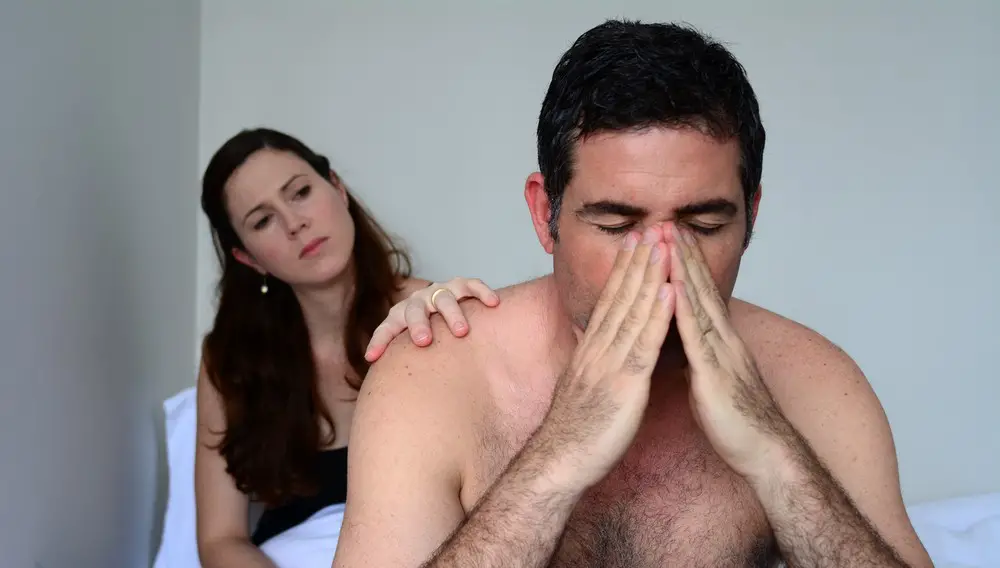 Recognizing Common Sexual Health Problems
Recognizing Common Sexual Health Problems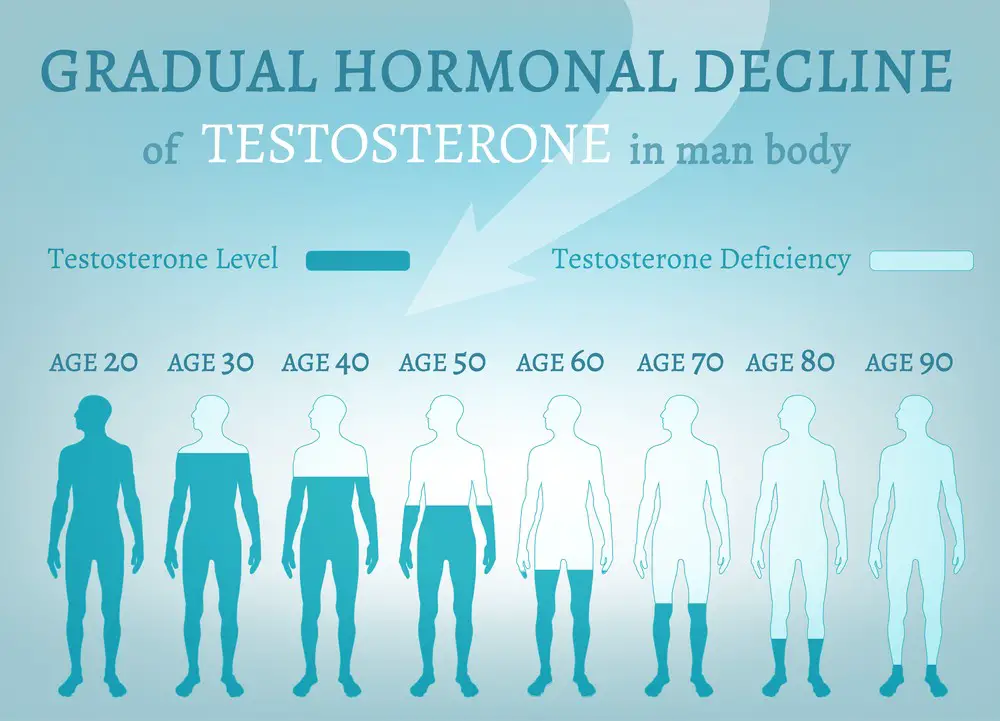 Struggling with Low Testosterone
Struggling with Low Testosterone Discussing Low Libido
Discussing Low Libido Psychological Factors in Sexual Health
Psychological Factors in Sexual Health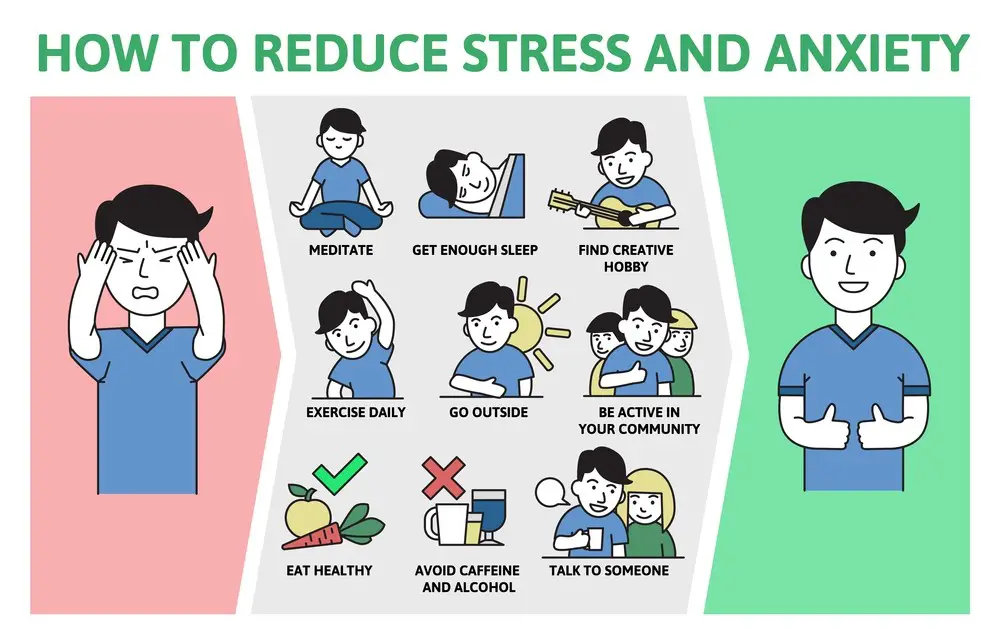 Impact of Stress
Impact of Stress Lifestyle and Sexual Health
Lifestyle and Sexual Health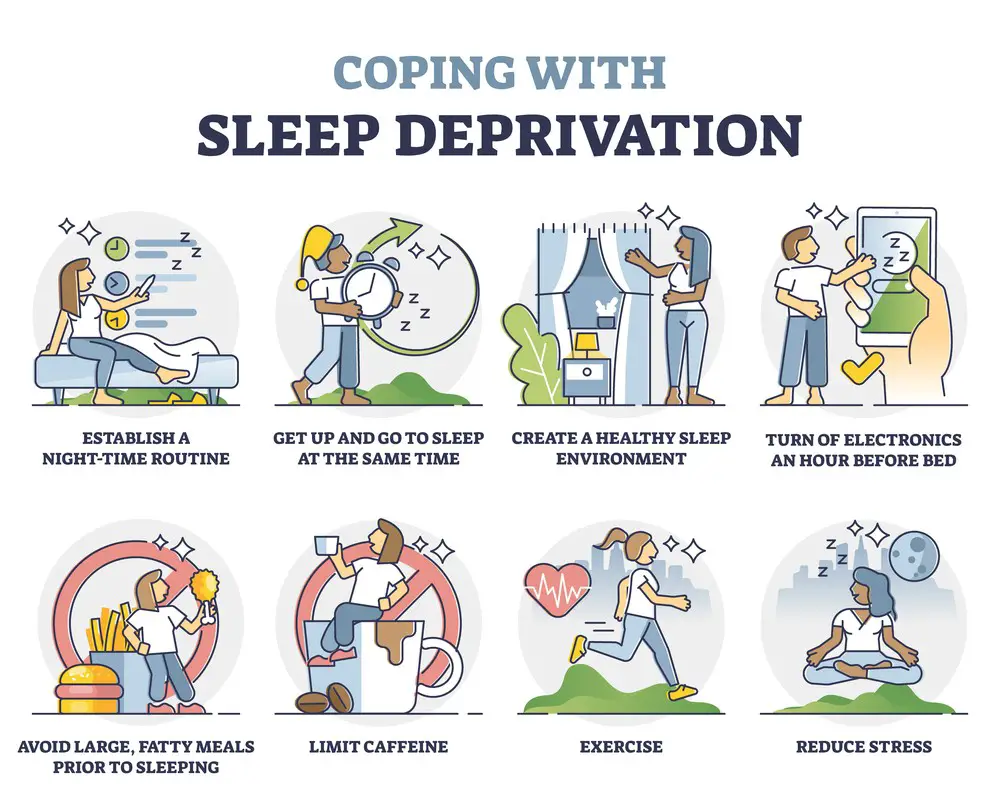 Role of Sleep
Role of Sleep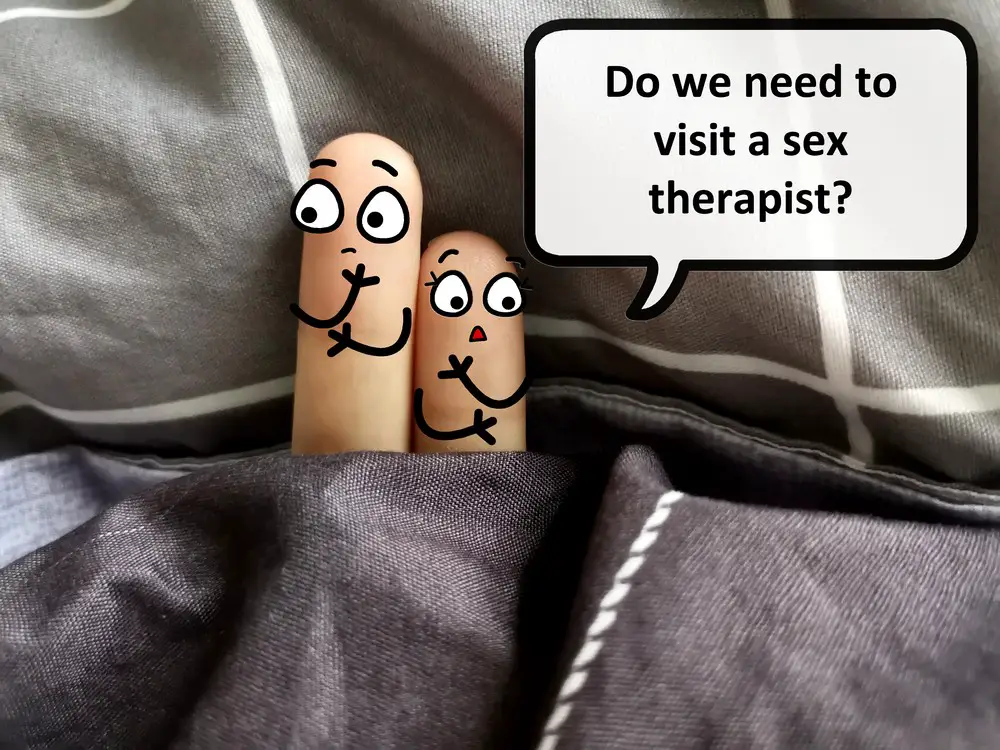 Finding a Sexual Health Physician
Finding a Sexual Health Physician Dealing with Side Effects
Dealing with Side Effects Preparing for a Sexual Health Appointment
Preparing for a Sexual Health Appointment Recognizing the Call for Professional Guidance
Recognizing the Call for Professional Guidance
